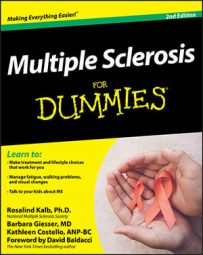When you have multiple sclerosis (MS), the most important thing to remember is that you can have fun just like everyone else. If you like to travel, why stop now? As long as you’re willing to plan ahead, take good care of yourself on the journey, and be flexible and creative once you’re there, the sky’s the limit!
The following tips can help you conserve energy, save time and hassle, and ensure your trip goes off without a hitch. In fact, many of these tips can benefit any traveler, with or without MS.
MS travel tip: Check ahead for accessibility
Everyone defines accessibility differently. Your definition will depend on your personal needs — do you need an elevator, air conditioning in your hotel room, or a grab bar in the shower? Travel agents that specialize in accessible travel know how to check whether a certain place or activity is accessible, but they can’t do the detective work without knowing what your needs are.
So, take the time to think through exactly what you’re likely to need at every step along the way. Of course, nothing is fail-safe, so prepare yourself for some occasional creative problem-solving.
MS travel tip: Rent accessible vehicles
These days, you can rent just about anything anywhere. A knowledgeable travel agent can help you find accessible equipment all over the world. For example, you may want to rent an RV (it’s great to have a bathroom handy for long car trips!), a car with hand controls, a wheelchair-accessible van, or a motorized scooter for gadding about. Just be sure to give your agent plenty of notice and details about your specific needs.
MS travel tip: Navigate air travel with confidence
Air travel has become a lot more complicated for everyone, but here are several things you can do to make it easier and more comfortable for yourself:
Call the airline a few days ahead of time to let them know of any special needs you may have.
Pick your seat carefully by figuring how much legroom you need and how close to the bathroom you want to be.
If you have computer access, print out your boarding pass ahead of time (most airlines make them available up to 24 hours prior to departure) to reduce waiting time at the airport and to guarantee your seat.
Get to the airport early to allow for long security lines and to avoid having to rush. And use curbside check-in to save your energy.
Pack smart so the things you need to access easily are right on top, and pack lightly so you aren’t lugging around more luggage than you need.
If you check any mobility equipment, such as a motorized scooter, tag all parts with your name and telephone number, and consider bringing the manuals in case your equipment needs to be reassembled after the flight.
MS travel tip: Don’t shy away from adventure
Spend a little time scouting on the Internet for accessible options — safaris to Africa, European tours, sky-diving, deep-sea diving, ski trips to Vail — whatever suits your fancy. Don’t assume that you can’t do something until you’ve taken the time to research it carefully. You’d be surprised at all the things that people with MS are up to!
MS travel tip: Tap the right resources
Even though you may feel like an intrepid explorer the first time you venture out on a long trip with your MS, remember that many, many others have gone before you — so be sure to tap into their expertise. Here are some resources to check out:
Take a look at The Access-Able Travel Source for detailed information about traveling with a disability.
Visit the National MS Society’s travel page for additional resources.
Check out the books There is Room at the Inn: Inns and B&Bs for Wheelers and Slow Walkers, Barrier-Free Travel: A Nuts and Bolts Guide for Wheelers and Slow Walkers, and 101 Accessible Vacations, all by Candy Harrington (Demos Health).

